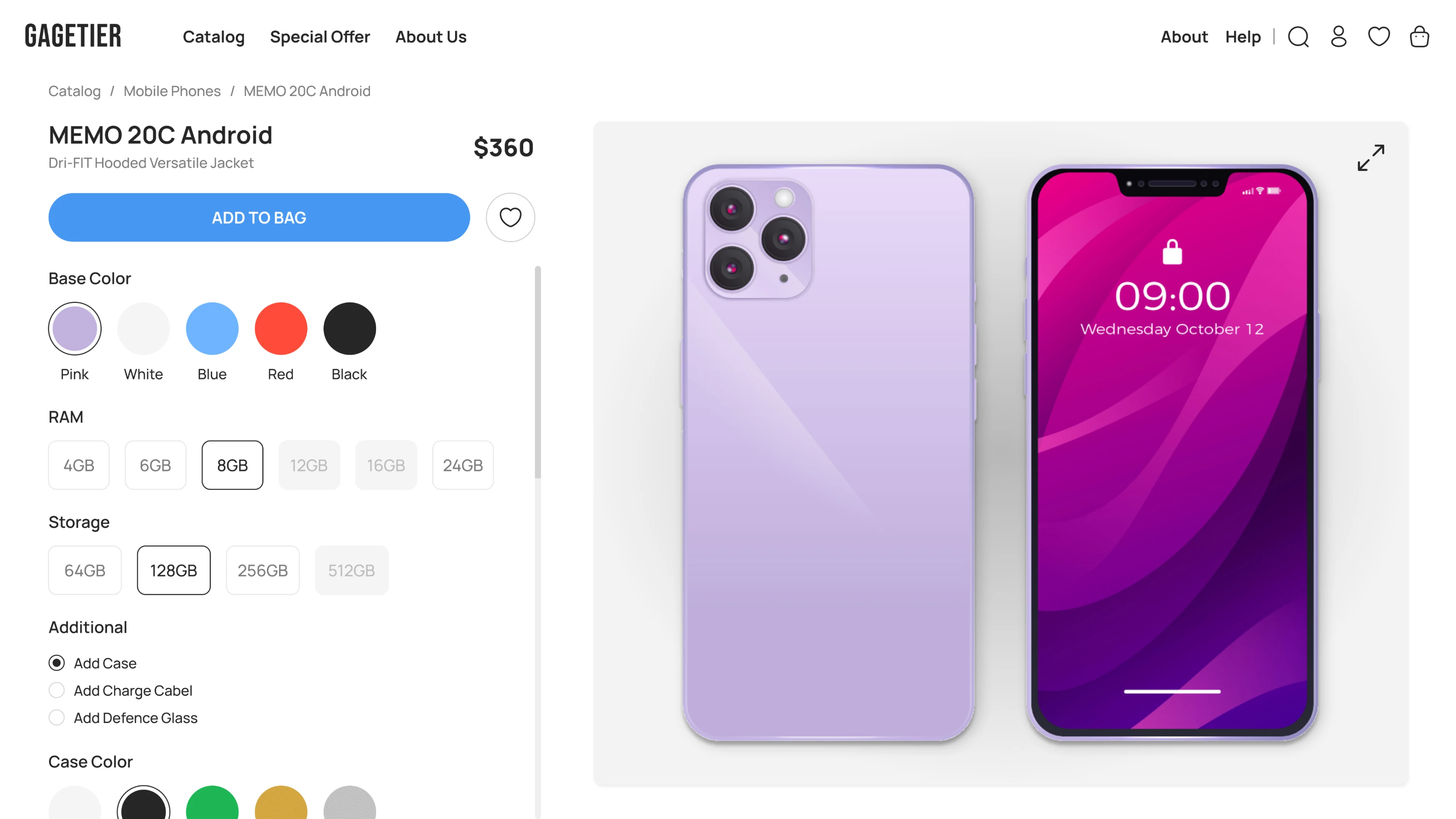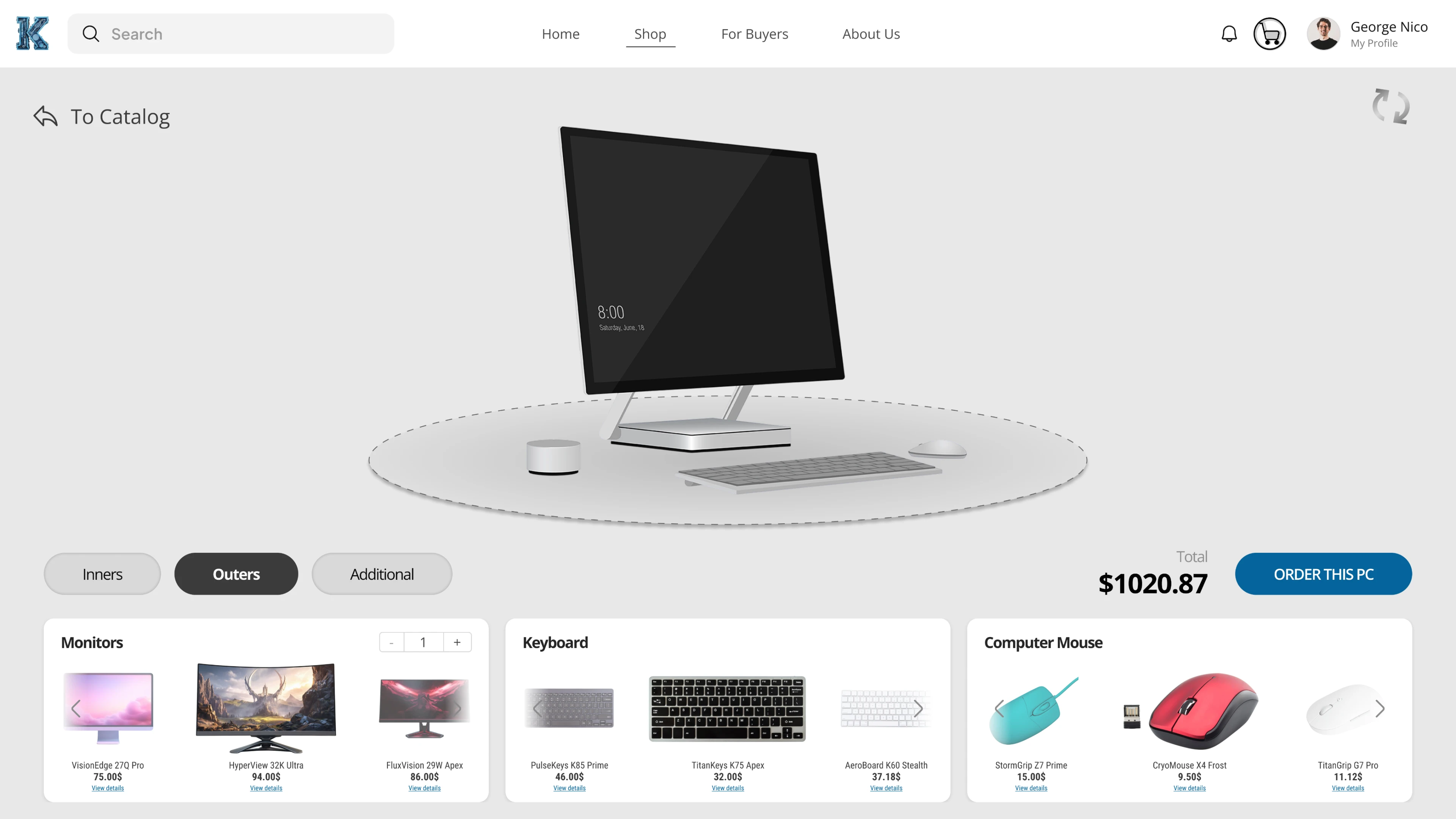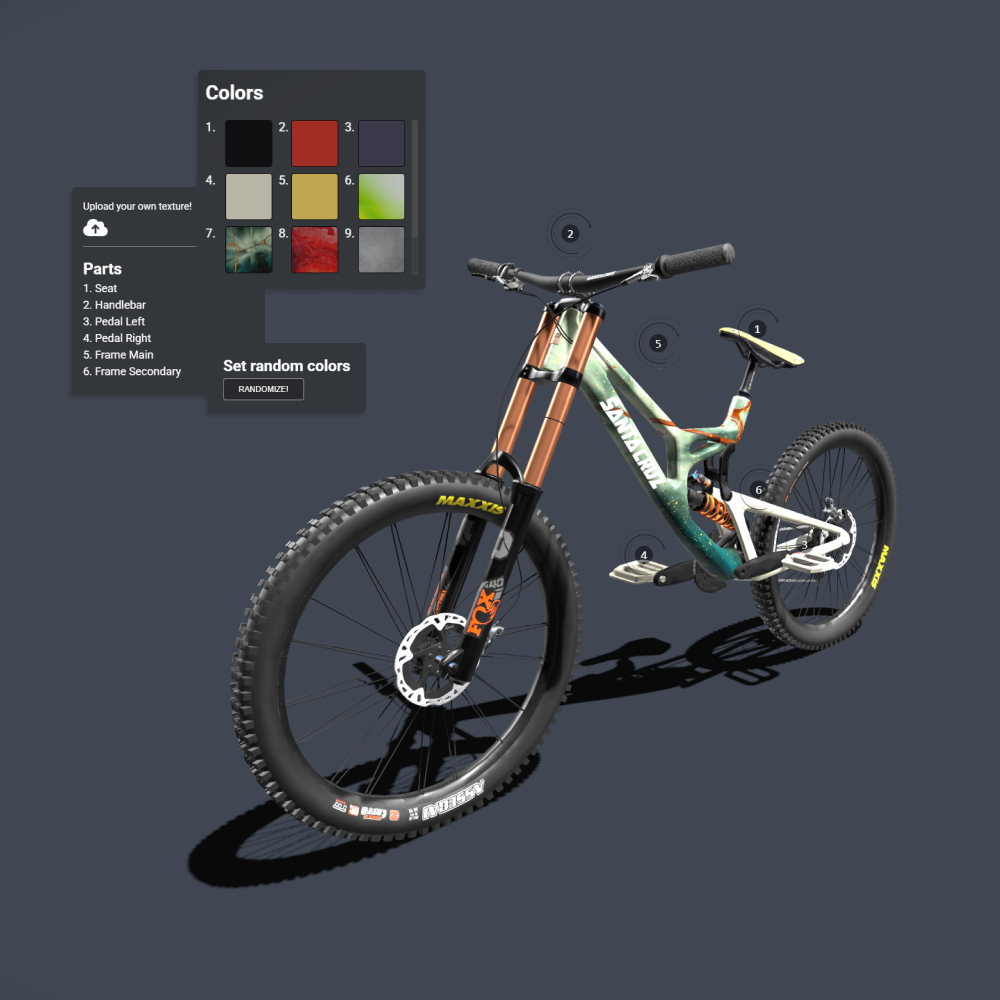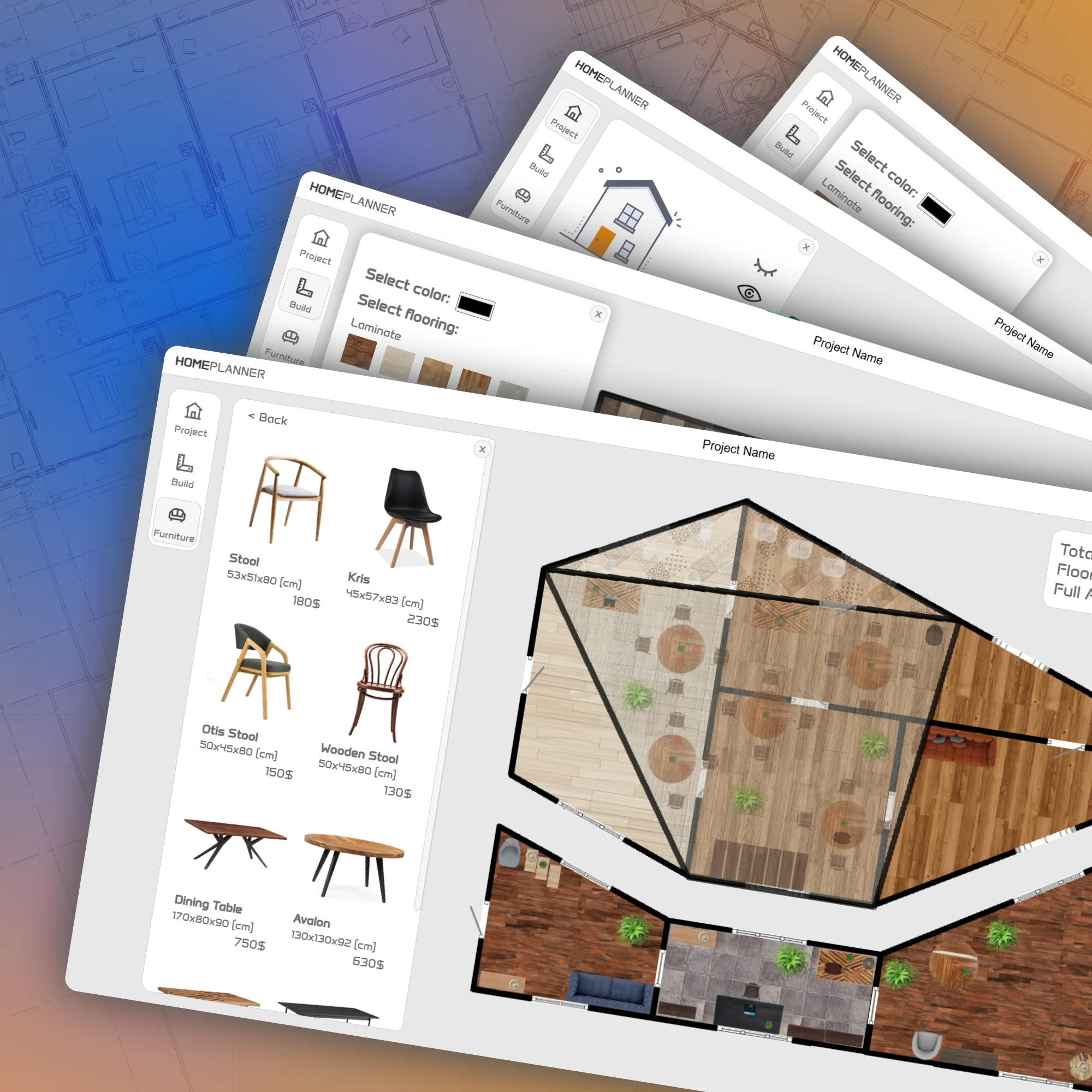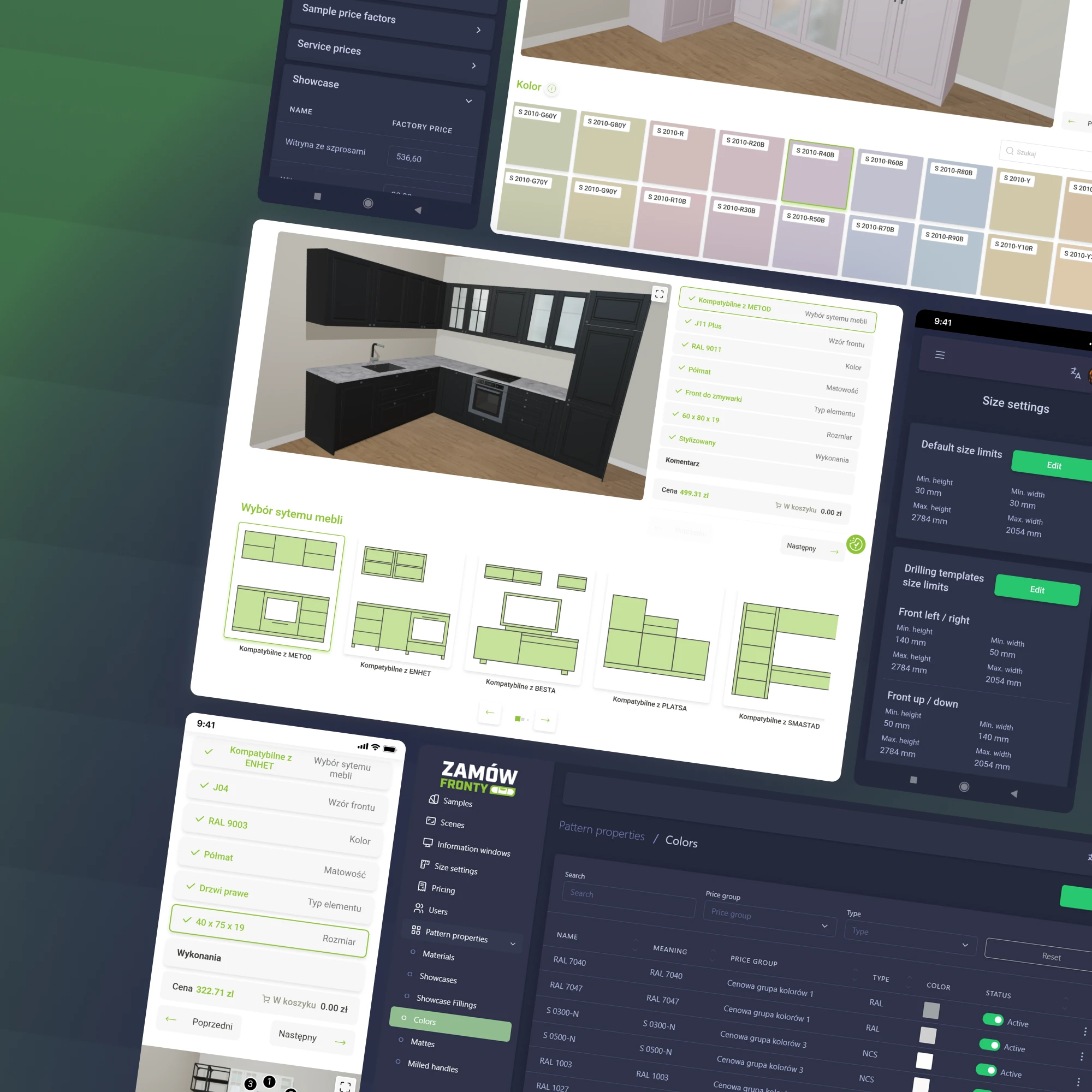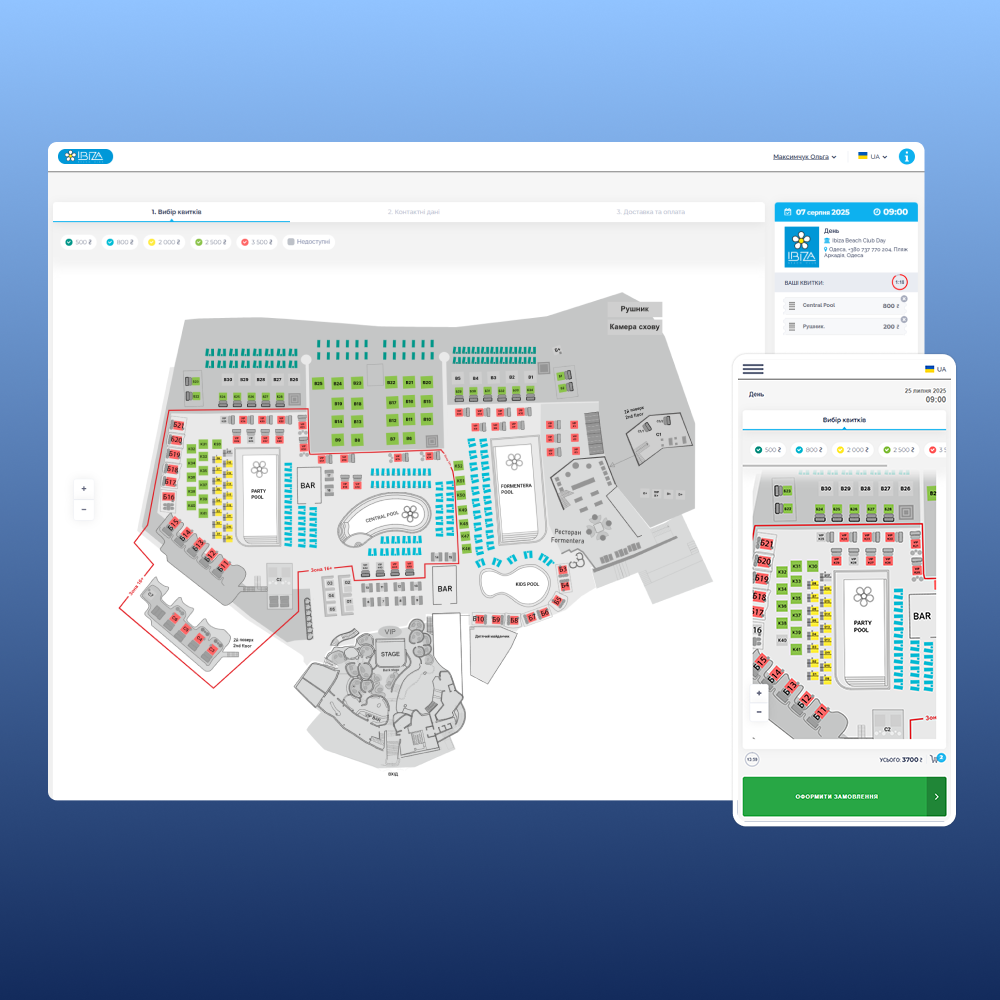









A classic online store with a catalog and filters is no longer able to effectively hold the attention of buyers. Expecting personalization and an exciting experience, visitors will choose an online store where they can interact with the product, feel their involvement with the brand and receive the most relevant offer. Therefore, traditional eCommerce platforms have been replaced by intelligent trading platforms with interactive elements, AI algorithms and modern UX solutions. They provide businesses with an increase in conversion and average check, turning random visitors into regular customers due to a unique experience that competitors cannot yet offer.
One of the key specializations of AVADA MEDIA is the development of an online store with a configurator. Our team creates smart and interactive trading platforms that do not just sell, but attract, surprise and retain customers. We move away from template sites and create a digital space that adapts to each visitor. The basis of our work is a powerful synergy of technologies. If you are looking for a new approach to e-commerce, we recommend ordering an online store with a configurator and an AI agent.
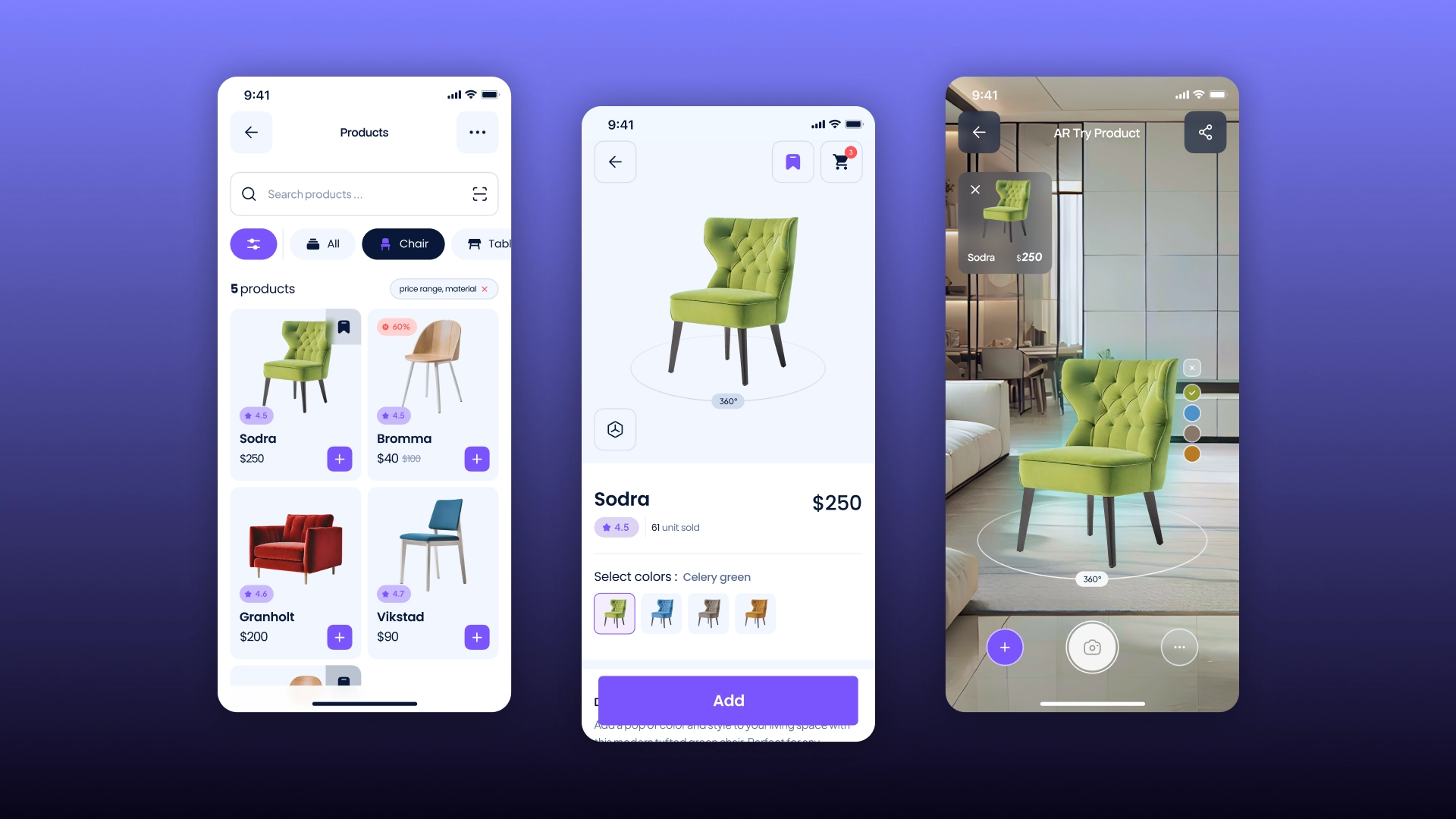
Requirements for creating an online store
Developing a next-generation online store is a complex task that requires not only the implementation of advanced features, but also compliance with a number of critical technical and business requirements. They determine the reliability of the platform, convenience for customers, and the readiness of the store to scale.
- Performance and scalability. A modern eCommerce platform must be ready for high loads: seasonal sales, advertising campaigns and traffic spikes should not slow down the site. To do this, it is important to create an online store with optimized architecture, resource allocation, use of CDN and the ability to scale horizontally.
- Adaptability and impeccable UX/UI design. Buyers enter the platform from different devices: smartphones, tablets, laptops. The interface should be equally convenient everywhere, and the path from choosing a product to placing an order should be intuitive and short. Every unnecessary action reduces conversion, so the UX/UI design of an online store becomes a key factor in successful sales.
- Integration with artificial intelligence. AI modules, intelligent search, chatbots and personalized recommendations require correct integration with CRM/ERP and analytics. It is important that the platform not only displays data, but also uses it for real personalization and marketing automation.
- Interactivity and multimedia solutions. Support for 3D models, AR technologies, animations and visual effects increases engagement, but requires competent optimization. It is important to create an online store that remains fast even when using heavy graphic solutions.
- Security and data protection. Buyers trust the platform with their personal/payment data, so it is important to ensure a secure connection, use SSL certificates, two-factor authentication, regular updates, and backups.
- Integration with management systems. Developing an online store should not be an isolated project, but part of the company's digital ecosystem. Integration with CRM, ERP, accounting, warehouse accounting and logistics allows you to minimize manual processes, eliminate errors and speed up customer service.
- SEO and marketing. Proper development of a website, online store is carried out taking into account SEO factors, and it is also necessary to provide for integration with advertising platforms, email marketing systems and analytical tools. We lay a solid foundation for the future SEO promotion of your online store: clean and valid code, high page loading speed, correct section structure and navigation, adaptive layout. Such a technical foundation makes the site convenient for search engines and users, and subsequently simplifies the work of marketers and SEO specialists.
- Flexibility and customization. Every business is unique, and an online store should reflect its specifics. Template solutions are limited in functionality, while custom development of a store website makes it possible to implement any scenarios - from 3D/2D configurators to exclusive loyalty programs .
- Convenient administration. Even the most innovative online store should be convenient for company employees. Management of products, orders, promotions, customer data and content should be carried out through an intuitive and functional admin panel.
- Reliability and support. Creating an online store is not a one-time project, but a long-term system. It is important to provide regular updates, technical support, monitoring, and scalability so that the platform meets market requirements for many years.

Possibilities of a modern online store
Today, an eCommerce site should not just be a showcase, but a full-fledged digital platform that combines sales, marketing, analytics, and customer service. Its main task is to present the product and make the interaction with the client as personalized, convenient, and technological as possible, which can be realized using the following tools.
Interactive 3D/2D configurators
Online designers allow the customer to assemble a product to their needs: choose the color, size, configuration, material, or even create an individual design. This reduces the likelihood of returns and increases trust in the brand.
For example, for car dealerships and tuning centers, you can create a website/online store with a car configurator , its equipment and styling; for furniture companies - modeling of kitchens and wardrobes; for the fashion segment - implement the option of choosing fabric, style or an online clothing and footwear designer.
Client's personal account
Creating an online store with a Personal Account, where the buyer has access to order history, delivery tracking, a loyalty program, saved product configuration, and individual offers, is another step towards convenient service and long-term customer relationships.
Intelligent search and navigation
Smart search with autocomplete, filters by characteristics, voice input or visual search (by photo) helps the buyer quickly find the right product. For example, in an appliance store, a quick search by characteristics (memory capacity, screen diagonal) is necessary; in online clothing sales - sorting by style, brand, size; B2B platforms require complex filters by technical parameters of the equipment.
AR visualizations and 3D objects
Virtual fitting rooms, the ability to view a product in 3D or “place” it in real space through augmented reality significantly increase the level of engagement. You can create an online furniture store with the ability to virtually place items created in a 3D furniture configurator in the interior, in jewelry boutiques with this option you can try on jewelry, in fashion retail - clothes or shoes.
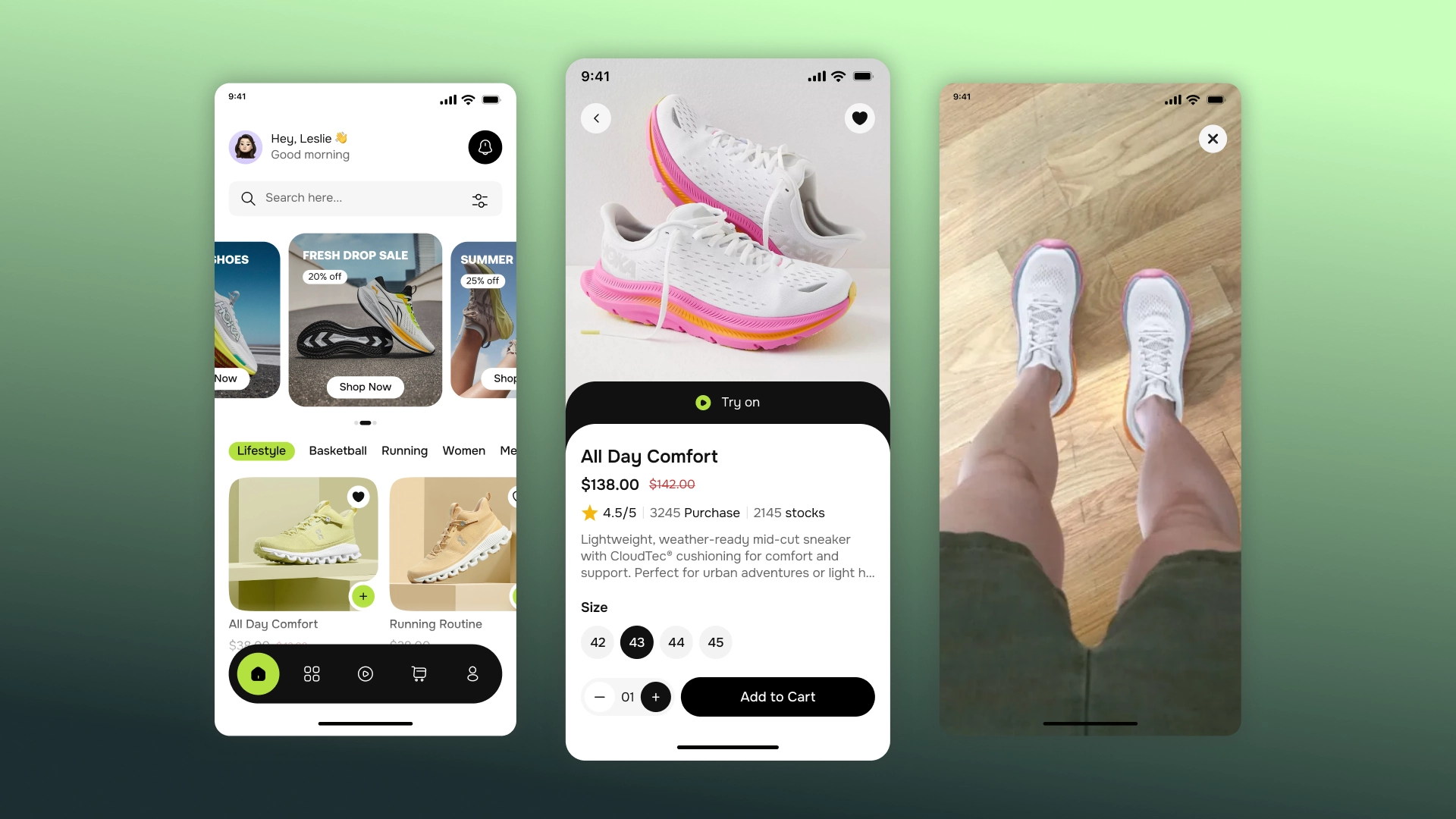
Integration with CRM and ERP
When creating a turnkey online store, it is important to configure its connection with accounting systems to automate processes - from managing customers, orders and inventory to building sales analytics. For example, in B2B sales this is necessary for accounting of complex orders and integration with accounting, in eCommerce - for managing large product catalogs.
Dynamic pricing
If you order the creation of an online store with AI support, you can automatically generate prices depending on demand, season, stock availability or customer behavior. At the same time, the system can launch personalized promotions, email and push notifications.
Cross-browser and cross-platform compatibility
An online store in PWA format works as a full-fledged application that does not require installation, with quick access via an icon on the device screen, push notifications, and offline mode.
Advanced analytics
Built-in analysis tools and integration with analytics services help you understand user behavior, evaluate the effectiveness of marketing campaigns, segment the audience, forecast demand, and optimize the assortment of trading platforms.
Personalization based on AI recommendations
Artificial intelligence systems analyze user behavior and offer relevant products, form upsells and cross-sells, personal discounts and selection by style or interests. For example, an AI agent in an online electronics store will provide the opportunity to choose accessories for a smartphone; in eCommerce fashion - will give recommendations for choosing clothes based on style and previous purchases; in a marketplace - will offer individual discounts and selection of promotions; in travel agencies - will help choose a tour online.
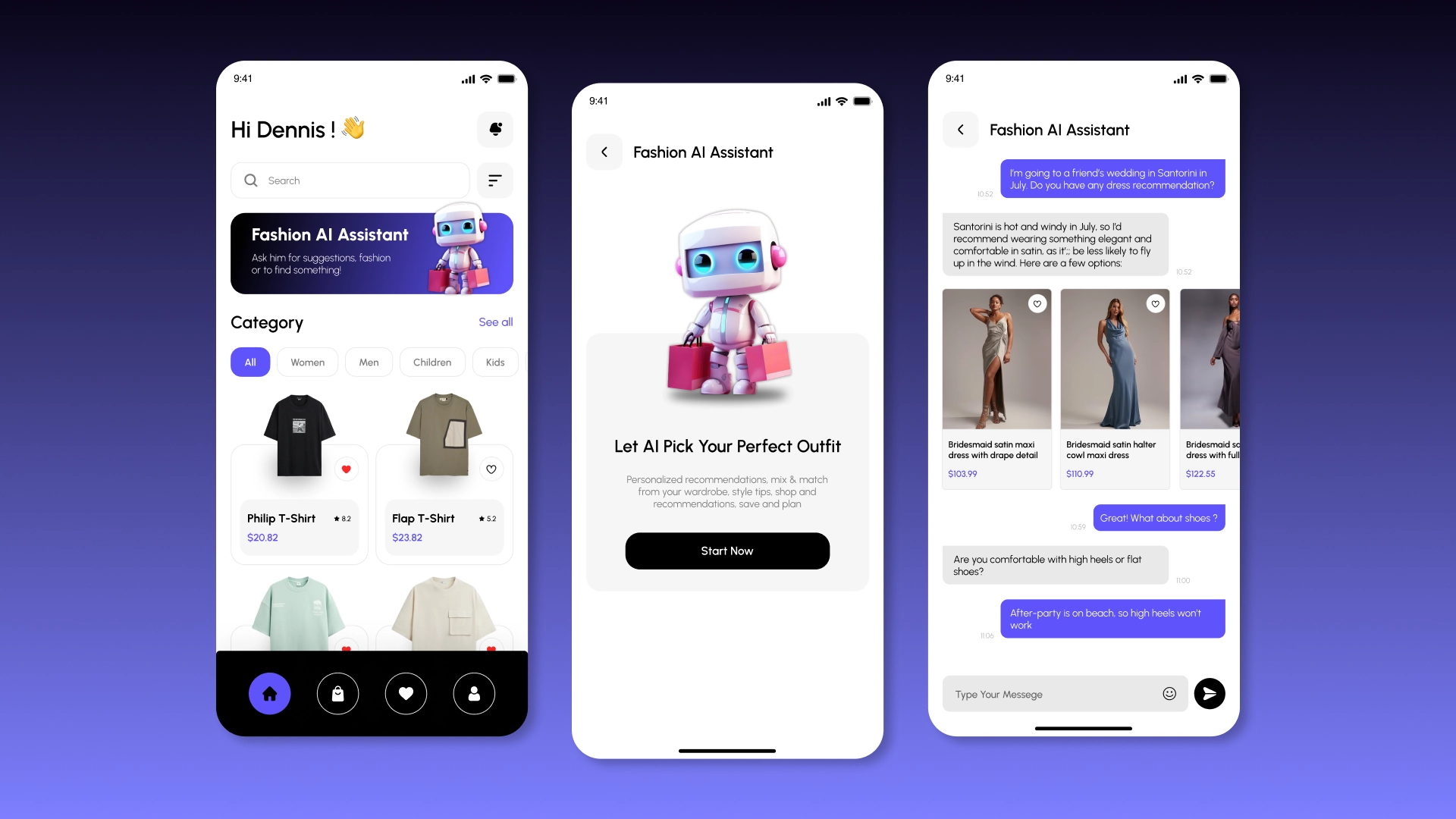
Stages of developing an online store
Developing a marketplace or online store is a complex task, where every detail is important: from the first prototype to launch and subsequent support. We follow a phased approach that allows us to avoid mistakes, take into account the customer's business goals, and bring the project to market in the optimal time frame.
- Analytics and design
Before creating a turnkey online store, we study the client's business objectives, the features of the assortment and the target audience. At this stage, the architecture is laid out: how the catalog, shopping cart, configurator will work, what systems need to be integrated. Analysts record all the requirements, agree on the key functions of the future platform and form the technical specifications. A clear TOR makes it possible to save time and budget at the following stages.
- UX/UI design and prototypes
Next, UX designers develop user scenarios – from product search to order placement, think through the logic and structure of pages, including the catalog, cart and personal account, as well as the user journey on different devices. Then they create interactive prototypes that allow you to test the logic, navigation and usability of the future store even before the start of software development and the creation of an online store.
After the prototypes are approved, UI design is applied: color scheme, fonts, corporate identity, including web graphics elements – microinteractions, button animations, pop-up tools and interactive catalog elements. Modern tools – Figma and Moqups – are used for the work. The result is a convenient, interactive and visually attractive online store project, ready for implementation.
- Programming: frontend and backend development of an online store
Approved prototypes are passed on to frontend and backend developers – the programming stage begins.
- The front-end developer is responsible for the user interface and interactivity: creating catalog pages, product cards, a shopping cart, as well as dynamic elements - filters, sliders, microinteractions, animations. For this, modern frameworks and libraries are used - such as React, Vue, Next.js or Nuxt, with support for PWA, component architecture, SSR/SPA and performance optimization.
- The backend developer provides data storage and processing, order logic, user management, integration with CRM and ERP, connection of payment systems and other external services. Node.js, Python/Django, PHP/Laravel and relational or NoSQL databases (PostgreSQL, MySQL, MongoDB) are used to implement the backend, including caching systems (Redis) and task queues (RabbitMQ, Kafka).
Interactive product configurators are implemented using WebGL/Three.js for accurate 3D visualization. AI modules: recommendation systems, personalized offers and AI bots, are integrated using specialized ML platforms and server APIs.
Thus, at this stage, the mockups are transformed into a full-fledged, functional, and high-tech product, ready for final testing.
- Testing and optimization
Following the development, the online store undergoes comprehensive testing, which includes checking functional modules, interface adaptability, payment system reliability and user data security, as well as platform stability under load – it is important that the store works correctly during traffic growth and seasonal peaks. If necessary, page loading speed is optimized and user scenarios are adjusted.
- Launch and technical support
At the final stage, the online store is deployed on the server, the domain is connected, SSL certificates, monitoring and backup systems are configured. After launch, we offer technical support and maintenance: updating modules and libraries, optimizing performance, adding new features as the business develops. This allows the client not only to work safely with the store, but also to scale it in the future without the risk of downtime and data loss.
How to order an online store with a configurator
At AVADA MEDIA you can order a turnkey online store, the price of which will fully correspond to the quality and will pay off in a short time. You will receive a modern, secure and high-performance platform, ready to work with real users and high traffic. More than 10 years of experience in developing websites, online stores, business systems and applications for eCommerce allow us to create innovative trading platforms that convert traffic, automate processes and take interaction with customers to a new level. We offer transparent conditions and a flexible approach to implementation so that each client receives a solution that fully meets their tasks. You can assess the level of our projects in Portfolio.
If you want to order a turnkey online store with intelligent support, unique custom functionality, and thoughtful design, contact us right now and we will offer a solution that fully meets your requirements and budget.
FAQ
-
How long does it take to develop a turnkey marketplace?
Development times depend on the scale of the project, the number of sellers, functional modules, and the level of customization. Typically, creating an online store with basic logic and standard integrations takes from 4 months, while complex projects require more time.
-
Is it possible to enhance your online store with additional modules?
So, first we analyze the architecture of existing solutions and assess the possibility of integrating new modules without completely reworking the store. Configurators and AI systems are developed as separate modules and integrated with the current architecture, ensuring correct work with the catalog, cart and CRM. This allows you to significantly expand the functionality without losing existing data and processes.
-
How much does it cost to make an online store?
The cost of developing an online store is determined individually and depends on the functionality, level of customization, integrations with external systems and additional modules. After the initial consultation and analysis of the requirements, we will provide a commercial offer that meets the capabilities and wishes of the customer.
-
Where is it best to implement intelligent recommendations and an AI assistant?
AI recommendations and assistants should be built into key points of the buyer’s journey: on the home page for personalized offers, in product cards for similar or complementary options, in the cart for upselling and cross-selling. Chatbots and AI consultants are effective on support and checkout pages, in configurators, where they help select options, make decisions and accelerate the purchase process. This approach ensures intelligent interaction with the customer at all stages.
-
When developing a marketplace, does the price depend on the number of sellers?
Yes, the number of sellers affects the cost of the project, as it increases the complexity of the architecture, database, interfaces for managing goods, and integrations with payment and warehouse systems. When developing turnkey marketplaces, we provide for scalability, so you can start with dozens of sellers and expand to hundreds or thousands without losing productivity. But at the same time, the more functionality for each seller, the higher the labor costs and, accordingly, the price of creating a marketplace.
-
How to manage content in an online store?
We integrate convenient content management systems such as Wagtail or a custom admin panel so you can easily update texts, images, products and promotions without the involvement of developers. The admin panel allows you to manage the catalog, categories, descriptions, prices, photo and video content, as well as track orders and customer activity.
-
Why is it better to order the development of an online store from scratch than to use template solutions?
Template solutions are limited by ready-made structure and scalability. A custom online store can have a unique design and custom functions, fully adapting to your business processes. Individual development of turnkey online stores provides high performance, security, SEO optimization and flexibility, allowing the business to grow and implement new technologies without restrictions.


